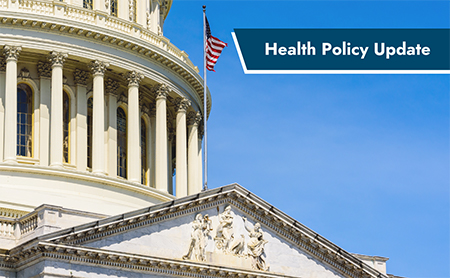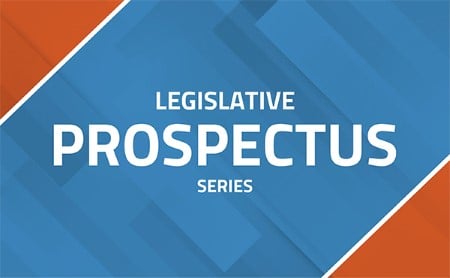2023 Legislative Session Update: Part One
April 27, 2023 | Parker Beene, Maggie Davis, Beth Giambrone, JoAnne McClure, Christina Severin
 In December 2022, ASTHO announced its annual top 10 public health state policy issues to watch for the 2023 state and territorial legislative sessions. With at least ten states concluding their regularly scheduled sessions so far this year, here’s a brief update on five of these topics.
In December 2022, ASTHO announced its annual top 10 public health state policy issues to watch for the 2023 state and territorial legislative sessions. With at least ten states concluding their regularly scheduled sessions so far this year, here’s a brief update on five of these topics.
Tobacco and Nicotine Products
ASTHO recently highlighted policy activities in this area, including the FDA’s recent authority to regulate products containing nicotine from any source. FDA has also updated regulatory documents to include new definitions of “tobacco products” and announced their plan to complete the rulemaking process of proposed product standards prohibiting menthol as a characterizing flavor in cigarettes. So far in 2023 state legislative sessions at least 17 states and one territory introduced legislation banning flavored tobacco products. For example, bills introduced in Hawaii (HB 551), Vermont (S 18), and Guam (50-37) would prohibit the sale of flavored tobacco products within their jurisdiction.
According to the American Lung Association, 22 states do not have comprehensive smoke-free laws that help protect against the dangers of second-hand smoke in a variety of settings (e.g., multi-family homes, public spaces, restaurants), and reduce the number of people who start smoking. At least 12 states have introduced legislation aimed at creating, promoting, or expanding smoke-free environments. For example, Illinois introduced SB 1561, which would amend the Smoke Free Illinois Act to include electronic smoking devices within public places such as gaming facilities, restaurants, or bars.
HIV
The federal government set a goal of ending the HIV epidemic in the United States by 2030 by supporting strategies such as expanded testing, treatment, and access to prophylaxis. ASTHO’s 2023 HIV prospectus highlighted evidence-based strategies states have been using to reduce the spread of HIV, including stigma-reducing efforts and decriminalizing HIV. At least 35 states have laws criminalizing HIV exposure, of which approximately one-third criminalize actions that cannot transmit HIV (e.g., spiting or biting).
During the 2023 legislative sessions at least three states have introduced legislation to modernize their HIV laws. In January, the Indiana House passed HB 1198 to remove criminal penalties for knowingly donating blood or semen when HIV positive and removing sentencing enhancements for exposing a public safety officer to bodily fluids when the person is HIV positive. Florida’s SB 1522 would require medical evidence showing a “reasonable probability of disease transmission” before convicting someone of criminal HIV exposure and Oklahoma’s HB 2343 would repeal all statutes criminalizing HIV exposure.
Mental Health
ASTHO’s 2023 mental health prospectus highlighted actions taken by jurisdictions to address suicide prevention and youth mental health in particular, noting proposals to increase access to mental health professionals and educating students and the general public about crisis prevention services. ASTHO also anticipated additional legislation to increase access to mental health care, including in schools, and expected further policy initiatives related to suicide prevention and youth mental health.
At least eight state legislatures have taken actions to support suicide prevention and education. Virginia enacted SB 1044, which requires that student identification cards include information about the 988 Suicide and Crisis Lifeline. South Dakota enacted HB 1079, which appropriates funds to support suicide prevention peer support training and suicide loss response services. In addition, Utah’s recently enacted HB 481 adds a requirement that schools provide suicide prevention materials and information to parents about limiting access to fatal means—including firearms or medication—when certain threats or incidents occur.
With respect to school-based care, New Mexico enacted SB 397 codifying school-based health centers that are operated and overseen by the health department. The law requires the centers to provide certain services, including mental health care and crisis intervention, and is expected to support sustainability for these established centers over time.
PFAS
In the 2023 environmental health legislative prospectus, ASTHO anticipated increased action in drinking water regulations, such as creating maximum contaminant levels for specific Per- and Polyfluoroalkyl Substances (PFAS). In March 2023, EPA released a proposed rule to create a PFAS National Primary Drinking Water Regulation (NPDWR). The proposed rule would establish legally enforceable levels for six PFAS that occur in drinking water. The proposed rule would also require public water systems to monitor and notify the public of PFAS levels and reduce the levels in drinking water if they exceed proposed standards.
So far in 2023, at least two states enacted bills relating to PFAS in water systems and waste streams (i.e., the flow of waste from its creation source to recovery, recycling, or final disposal). With HB 2189, Virginia will require industrial users of publicly owned treatment works that receive and clean, repair, refurbish, or process items that contain PFAS to test waste streams prior to and after cleaning, repairing, refurbishing, or processing those items. In West Virginia, a new law, HB 3189, requires the Department of Environmental Protection (DEP) to identify and address PFAS sources impacting public water systems and requires DEP to monitor and update National Pollutant Discharge Elimination System (NPDES) permits for facilities that use PFAS chemicals.
In addition, New York’s new law A 994 prohibits the sale of intentionally added PFAS in apparel after January 1, 2025, requires the Department of Environmental Conservation to establish limits for PFAS in apparel by January 1, 2027, and prohibits outdoor apparel for “severe wet conditions” with PFAS above a state established level or as intentionally added chemicals by January 1, 2028.
Opioids
Fatal overdoses have surged since 2020 with potent synthetic opioids, such as fentanyl, being a critical factor. By 2021, synthetic opioids were involved in at least 50% of all overdose deaths in 36 states, with provisional data suggesting this could be even higher for 2022. In its 2023 Opioids legislative prospectus, ASTHO anticipated that states would consider legislation to reduce fatal overdoses, including decriminalizing fentanyl test strips (FTS), increasing naloxone access through co-prescribing requirements, and supporting naloxone community distribution through schools.
At least 13 states have introduced legislation in 2023 to support FTS usage and community distribution. In Illinois, the Senate is considering HB 3203 that would allow a pharmacist or retailer to sell FTS over the counter. In New York, A 5005 would provide pilot programs to distribute FTS at no cost. Of ten states that introduced legislation to decriminalize FTS, three have enacted bills. Mississippi signed HB 722 into law to exclude FTS from the definition of drug paraphernalia. Similarly, Utah passed SB 86 that excludes testing products and equipment, such as FTS, from being considered drug paraphernalia, and Kentucky enacted HB 353 that excludes synthetic opioid testing products from being considered drug paraphernalia.
ASTHO’s state health policy team continues to monitor these important public health issues and will provide a mid-session update for our remaining five issues to watch—data modernization, reproductive health, health equity, public health authority, and immunization—next week.
Related Content

Legislative Prospectus Series
This series of briefs summarizes legislation proposals that impact public health. Focus areas include Public Health Infrastructure, Data Modernization and Privacy Protections, Mental and Behavioral Health, and more.